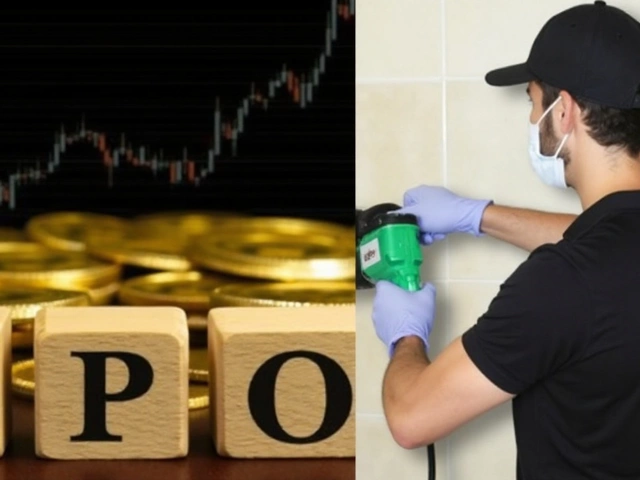Real Madrid Ends Manchester City’s 35-Match Home Unbeaten Run in Champions League Clash

On Monday, February 11, 2025, at 8:00 PM UTC, Real Madrid Club de Fútbol stunned the football world by defeating Manchester City Football Club 3-2 at the Etihad Stadium in Manchester — breaking a 35-match unbeaten home streak in Champions League play that had stood since 2016. The result wasn’t just a shock; it was a statement. In the first leg of their playoff tie, Real Madrid came into the lion’s den and walked out with a lead that feels almost insurmountable — and it wasn’t even the most dramatic part.
The Goal That Broke the Streak
It was Jude Bellingham, the 21-year-old English midfielder, who delivered the knockout punch in the 90+1 minute. A cross from Vinicius Junior skipped through the City defense, Bellingham arrived like a sprinter on a track, and his left-footed volley flew past Ederson — the Brazilian goalkeeper who had been nearly flawless this season. The Etihad fell silent. The away bench erupted. And suddenly, the narrative shifted: Manchester City weren’t just beaten — they were outplayed, out-hustled, and out-thought.
Before Bellingham’s winner, Kylian Mbappé had opened the scoring in the 27th minute with a curler that kissed the post before nestling into the net. Then, Brahim Díaz doubled the lead just before halftime, slotting home after a brilliant one-two with Rodrygo. Manchester City, the reigning 2023 champions, responded through their talisman, Erling Haaland, who netted twice — once in the 54th minute with a thunderous header, and again in the 78th after a darting run that left two defenders in his wake. But it wasn’t enough. Not against this Real Madrid.
Ancelotti’s Masterclass
Carlo Ancelotti, the 65-year-old Italian tactician with seven European Cup winners’ medals to his name, didn’t just manage this game — he engineered it. Without injured right-back Lucas Vázquez, he shifted David Alaba to right-back and deployed his four top scorers: Mbappé, Vinicius, Rodrygo, and Bellingham. The result? 19 shots on goal — the most ever by a visiting team at the Etihad in Champions League history. And only three were on target. That’s not luck. That’s pressure.
"These matches are so high-level you have to be at your best in every area," Ancelotti said in his pre-match presser, his tone calm, almost dismissive of the hype. He didn’t need to shout. His team did the talking. And they did it with discipline, intelligence, and a cold-blooded finish that’s become Real Madrid’s trademark in knockout football.
A History of Comebacks — And Near-Collapses
Real Madrid now hold a staggering historical edge: in 36 of their previous 38 European knockout ties where they won the first leg away, they advanced. That’s a 95% success rate. But here’s the twist: they’ve also been here before. In the 2022-23 season, they won 1-0 away at RB Leipzig, only to nearly blow it at home — drawing 1-1 and surviving on a late Rodrygo goal. In 2021-22, they led Chelsea 3-1 on aggregate after the first leg — then watched as Chelsea scored three goals in 12 minutes at Stamford Bridge. Karim Benzema’s late winner saved them. That’s the shadow hanging over this tie.
Rodrygo, who scored in both legs against City last season, put it bluntly: "I think it was the first year when we had more control in both matches. There were some challenging moments... but the second half [in Manchester] was amazing." He’s right. Real Madrid didn’t dominate possession — they dominated moments. And in knockout football, that’s all that matters.

The Second Leg: Bernabéu Under Pressure
The return leg is set for Wednesday, February 19, 2025, at 8:00 PM UTC at the Santiago Bernabéu Stadium in Madrid. The atmosphere will be electric — but not just because of the crowd. Manchester City, under Pep Guardiola, are not a team that folds. They’ve overturned 2-0 deficits before. They’ve won Champions League finals from behind. And they’ve got Haaland, who’s now scored 8 goals in this season’s competition — and is still hungry.
But here’s the real question: can Guardiola’s side recover from the psychological blow of losing at home — especially after a 35-match unbeaten run? City finished the group stage 22nd out of 36 teams, with just three wins. They survived on pedigree, not performance. Real Madrid, meanwhile, finished top of their group. This isn’t just a tactical battle — it’s a battle of belief.
Why This Format Matters
This is the first season of UEFA’s new playoff format, introduced after the collapse of the European Super League. Instead of a traditional group stage, the winners of the last three Champions League tournaments — Real Madrid (2022, 2024), Manchester City (2023), and Bayern Munich (2020) — are seeded into this new round. The idea? Reward champions. The reality? It’s created the most high-stakes early clash in decades.
It’s also created a rivalry that won’t fade. This is the fourth consecutive season these two clubs have met in the Champions League knockout phase. In 2022, Real Madrid eliminated City in the semis. In 2023, City won the final. Last year, they met in the quarters — and Real Madrid won on penalties after a 3-3 aggregate. Now, the stakes are even higher: only one of them reaches the last 16.

What’s Next?
Expect Guardiola to make adjustments. He might bench Phil Foden to add midfield steel, or push Julian Alvarez higher to exploit Real Madrid’s occasional vulnerability on the counter. But the bigger question is psychological. Can City recover from the shock of losing at home — and the knowledge that their invincibility has been shattered?
For Real Madrid, it’s about history. They’ve done this before. They know how to close. But they also know how close they’ve come to falling apart. The Bernabéu will roar. But so will the City fans, who’ve traveled in force.
Frequently Asked Questions
How did Real Madrid manage to break Manchester City’s 35-match unbeaten home streak in the Champions League?
Real Madrid broke the streak by combining tactical discipline, clinical finishing, and psychological pressure. They didn’t dominate possession — they controlled key moments. Mbappé opened the scoring, Brahim Díaz doubled the lead, and Jude Bellingham’s 90+1 minute winner sealed it. City’s defense, usually rock-solid, looked disorganized under Real Madrid’s relentless counter-pressing and high-intensity runs from Vinicius and Rodrygo.
What’s the historical advantage Real Madrid holds heading into the second leg?
Real Madrid have won the first leg away from home in 38 previous European knockout ties — and advanced in 36 of them (95% success rate). That’s the highest conversion rate in Champions League history. But history also shows they’ve nearly collapsed before: in 2022-23 against RB Leipzig and 2021-22 against Chelsea, they held big leads only to nearly lose in the second leg.
Why is this the fourth consecutive season Real Madrid and Manchester City have met in the Champions League?
Both clubs have consistently reached the knockout stages — but this season’s meeting is unique because of UEFA’s new playoff format. The winners of the last three Champions League titles (Real Madrid in 2022 and 2024, City in 2023) are now forced to face each other in a preliminary knockout round before the last 16. It’s a direct result of the failed European Super League, designed to reward past champions.
What impact does this result have on Pep Guardiola’s legacy at Manchester City?
Losing at home in the Champions League, especially after a 35-match unbeaten streak, is a rare blemish for Guardiola. While he’s won multiple titles, this defeat raises questions about his side’s resilience under pressure. If City are eliminated, it could be seen as a failure to adapt to Real Madrid’s knockout mentality — something Guardiola has often criticized in other teams. The pressure is mounting to deliver a European crown this season.
Can Manchester City still qualify after losing 3-2 in the first leg?
Absolutely. A 3-2 deficit is not insurmountable. City have overturned similar deficits before — notably in the 2022-23 quarter-final against Bayern Munich, where they won 4-2 at home after losing 2-1 away. With Haaland scoring regularly and Kevin De Bruyne back from injury, City have the firepower. But they’ll need to score at least two goals and prevent Real Madrid from adding another — a tall order at the Bernabéu.
Who are the key players to watch in the second leg?
For Real Madrid, Jude Bellingham and Vinicius Junior are the engines — both scored in the first leg and thrive on counters. For City, Erling Haaland is the obvious threat, but Phil Foden’s creativity and Kevin De Bruyne’s passing could unlock Real Madrid’s defense if they’re given space. Also watch Real Madrid’s midfield anchor, Federico Valverde — if he’s disciplined, he’ll shut down City’s buildup.




